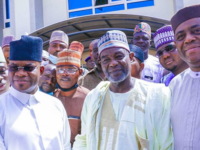The digitization speed of Nigeria has received a huge blow as the country was ranked low in the latest Digital Quality of Life Index (DQL), dropping to 88th position in the world, two places downward compared to last year’s ranking.
The Digital Quality of Life Index is an annual study that ranks 121 countries by their digital well being based on five core pillars of Internet quality, Internet affordability, e-security, e-infrastructure, and e-government. Out of the Index’s five pillars, the 2023 Digital Quality of Life Index Report by Surfshark showed that Nigeria performed average in internet quality, claiming 62nd spot, while internet affordability was ranked 108th. The nation was ranked 73rd in e-security, 88th in e-government, and 93rd in e-infrastructure.
In the overall Index, Nigeria lagged behind South Africa (72nd) and Kenya (76th). Nigeria was rated 7th place in Africa, with South Africa the leader in the region. Surfshark’s spokesperson, Gabriele Racaityte-Krasauske, said: “In many nations, ‘digital quality of life’ has merged into the broader concept of overall ‘quality of life’. There’s no other way to look at it now that so many daily activities, including work, education, and leisure are done online. That’s why it’s crucial to pinpoint the areas in which a nation’s digital quality of life thrives and where attention is needed, which is the precise purpose of the DQL Index,”
On Internet quality, Nigeria is just around the global average, as fixed Internet averages 25 Mbps. The world’s fastest fixed internet country, Singapore is 300 Mbps. Meanwhile, the slowest fixed Internet country in the world, Yemen, is 11 Mbps. Nigeria’s mobile Internet averages 47 Mbps. The fastest mobile internet country, the UAE is 310 Mbps, while the world’s slowest mobile internet country, Venezuela is 10 Mbps.
Compared to South Africa, Nigeria’s mobile Internet is 31 per cent slower, while fixed broadband is 64 per cent slower. Since last year, mobile Internet speed in Nigeria has improved by 87 per cent, while fixed broadband speed has grown by 33 per cent. The report stated that Nigerians work 35 hours, 25 minutes a month to afford fixed broadband Internet, while Romanians work 18 minutes a month to afford it. According to the report, Nigerians have to work two hours 59 minutes 15 seconds in a month to afford mobile Internet, while Luxembourgers work 16 minutes in a month to afford it.
Nigeria is 73rd in the world in e-security, seven places lower than last year. The e-security pillar measures how well a country is prepared to counter cybercrime, as well as how advanced a country’s data protection laws are. In this pillar, Nigeria lagged behind South Africa (72nd) and Kenya (65th). This indicates that Nigeria is unprepared to fight cybercrime, aside having deficient data protection laws.
Nigeria is 93rd in e-infrastructure and 88th in e-government. Advanced e-infrastructure makes it easy for people to use the Internet for various daily activities, such as working, studying, shopping, among others. The e-government pillar showed how advanced a government’s digital services are and the level of Artificial Intelligence (AI) readiness a country demonstrates. Nigeria’s e-government is below the global average. So sad!





